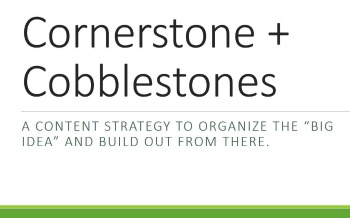Edelman’s 2013 Trust Barometer came out earlier this month, and it has some interesting takeaways for companies and how they do business.
The survey identifies five “trust performance clusters”–engagement, integrity, products and services, purpose, and operations–and finds that:
“In 2008, among the general population, corporate reputation was driven primarily by operational excellence. But over the past five years the criteria people use to consider leadership has gone through an extraordinary transformation. Today, operational excellence has fallen to near the bottom of the 16 trust-building attributes revealed by the barometer.”
Edelman attributes the shift away from operational excellence as a core measure of trust to the idea that doing operations right is “table stakes–fundamental competencies everyone expects companies to exhibit, but not much more.”
I wish this were correct, but I’m not so sure.
Let’s be blunt: Most people today are no more capable of deciphering an annual report or other public financial filings than they were in 2008. (They’re not intended to be decipherable.) I suspect people rank operational excellence no more or less valuable as a barometer of trust because identifying operational excellence is hard. Outside of your own organization and those companies that you have a financial stake in, you tend to recognize operations as a function mostly when you see it go wrong.
The difference from 2008? We’re no longer facing imminent global economic catastrophe brought about by corporate malfeasance. In other words, the media (and the rest of us) aren’t laser-focused on operational competence.
So what do people value in 2013? External-facing factors. Which tracks with the changing ways that we communicate with each other and expect to be able to communicate with the organizations with which we do business.
Trust has to be earned, one customer at a time.
The survey found that people value engagement, employee satisfaction (e.g., “treats employees well”) customer satisfaction (e.g., “listens to customer needs and feedback”), ethical business practices (e.g., “places customers ahead of profits”), and transparency.
My big takeaway from the 2013 Edelman Trust Barometer is that it reinforces the need to make every business into a more social business. Yes, it’s an evolution. And it is one companies ignore at their peril.
You can’t hide behind a closed door anymore.
What’s your takeaway from the Edelman survey?
Photo by jennaddenda (Flickr).



